- Understanding The Difference
- Claim Settlement Process
- Cashless Everywhere Initiative

Simran is an insurance expert with more than 4 years of experience in the industry. An expert with previous experience in BFSI, Ed-tech, and insurance, she proactively helps her readers stay on par with all the latest Insurance industry developments.
Reviewed By:
Anchita has over 6 years of experience in content marketing, insurance, and healthcare sectors. Her motto to make health and term insurance simple for our readers has proven to make insurance lingos simple and easy to understand by our readers.
Updated on Jan 24, 2025 3 min read




Network and Non-Network Hospitals
It is essential to have access to quality healthcare during medical emergencies, or planned treatments. With the consistent rise in healthcare costs, finding affordable healthcare facilities is difficult, especially in sub-urban cities without proper medical coverage.
Families and individuals belonging to middle-class or lower-middle-class income groups suffer financially without adequate insurance. However, if you invest in health insurance, you can easily avail of cashless treatments in both network and non-network hospitals.
 traordinary Facts
traordinary Facts
The General Insurance Council announced in January the ‘Cashless Everywhere’ initiative allowing patients with health insurance coverage to avail treatment at any hospital and not just those institutions mentioned in their policy.
What Are Network Hospitals?
All the hospitals associated with a health insurance company fall under ‘Network Hospitals’. When you seek medical treatments from a network hospital your expenses are settled between the insurer and the network hospital.
What Are Non-network Hospitals?
A non-network hospital is a hospital that does not fall under the network of your health insurance provider. On seeking medical treatment from a non-network hospital you have to pay the bill out of pocket first and file a reimbursement claim with your insurer later.
Network Vs Non-Network Hospitals: A Comparison
| Basis | Network Hospital | Non-Network Hospital |
|---|---|---|
| Definition | Hospitals that are in connection with the health insurance company are called network hospitals. | Hospitals that are not present in the list of hospitals by health insurers are known as non-network hospitals. |
| Contract Agreement | Network hospitals have a formal agreement with the insurance providers. | Non-network hospitals do not have a formal agreement or contract with the insurance provider. |
| Benefits | You will receive the services at reduced or pre-negotiated rates. | You might face higher out-of-pocket costs for the services you receive. |
| Billing Process | Most of the time, your health insurer will directly settle the bills with the hospital. | Most of the time, you need to pay the bill upfront and seek reimbursement from your insurer later. |
| Listing | Network hospitals are usually listed in the provider’s directory of the insurance plan. | Non-network hospitals are not listed in the directory of the insurance provider. |
| Insurance Coverage | You will get comprehensive coverage for the rendered services. | Your coverage may be limited or may be subject to different reimbursement rates. |
| Waiting Period | No waiting period applied. Your bill will be settled immediately. | Yes, there will be approximately 10-15 days of waiting period applied for reimbursement. |
| How does it work? | With the network hospital, you need to file the claim and the insurance company will settle the bill directly with the hospital. | For emergencies, your bill will be settled directly, but in case of planned hospitalisation, you need to pay the bill from your pocket and then apply for reimbursement. Then the company will reimburse the lump sum amount that you paid against the hospitalisation. |
How Does Network Hospitalization Work?
Now that we know what network hospitals are, let us understand how cashless hospitalization and claim settlement work.
Mr A, advised by his doctors has to undergo preventive surgery. On searching network hospitals on the panel of his health insurer, he found a good one near his area of residence offering him the treatment required. On admission, Mr. A and his family get in touch with the TPA desk at the hospital.
The TPA in turn acts as a mediator between the insurance holders and the hospital making sure they have a smooth cashless claim settlement process. The hospitalization and treatment expenses are paid by the insurer as per Mr A’s health policy.
How Does Non-Network Hospitalization Work?
On the other hand, Mr B was admitted to a non-network hospital. In this scenario, he will receive the required treatment, get discharged, pay the hospital bills out-of-pocket, collect all important documents, and file a reimbursement claim later.
In the case of a non-network hospital, claim processes are somewhat tedious and time-consuming compared to network hospitals. A common challenge policyholders face is a higher risk of partial claim settlement or complete rejections for non-network hospitalization.
Concluding Note
It is recommended to opt for health policies with a vast list of network hospitals. Investing in a mediclaim with cashless hospitalization facilities in-network hospitals is necessary to safeguard your financial health. Having a TPA handle the paperwork is a smart move as you focus on rest and recovery.
Schedule a 30 minute personalized session with our health insurance experts today.
Consult for Personalized Insurance Advice

But how does it work?
Schedule a call with India’s number 1 trusted advisor with a 4.5+ rating on Google. We are not your average insurance agents. Our advisors are experts in their insurance knowledge and will give you the right information at the right time. The service is free of cost! Don’t worry, we won’t spam as we value your time.
Health Insurer Network Hospitals
Network Vs Non - Network Hospitals: FAQs
1. What is the major difference between network and non-network hospitals?
Hospitals associated with health insurance companies are known as network hospitals and hospitals that are not associated with health insurers are called non-network hospitals.
2. What is the meaning of a cashless hospital network?
It refers to the group of hospitals and healthcare providers that are mentioned in the health insurance policy. You can avail of cashless benefits from these hospitals.
3. What is a non-network claim?
In case of availing of treatment from non-network hospitals or healthcare providers that are not in contract with your health insurance company, you need to apply for a reimbursement claim or non-network claim.
4. What is cashless hospitalization?
Cashless hospitalization refers to the hospitalization process wherein you do not have to worry about paying bills to the hospital. Your health insurer settles the bills directly with your network hospital. Contact the TPA desk at the network hospital to make the process easier.
5. What is a network hospital?
A network hospital is the one that is listed on the panel of your health insurance company providing you with a cashless treatment facility.
6. What is a non-network hospital?
A non-network hospital is not on the panel of your health insurance company. If you opt for treatment in a non-network hospital, you must file for a reimbursement claim after paying for your medical treatment.
Health Insurance Companies
Know More About Health Insurance Companies
Share your Valuable Feedback
4.4
Rated by 2629 customers
Was the Information Helpful?
Select Your Rating
We would like to hear from you
Let us know about your experience or any feedback that might help us serve you better in future.

Written By: Simran Kaur Vij
Simran is an insurance expert with more than 4 years of experience in the industry. An expert with previous experience in BFSI, Ed-tech, and insurance, she proactively helps her readers stay on par with all the latest Insurance industry developments.
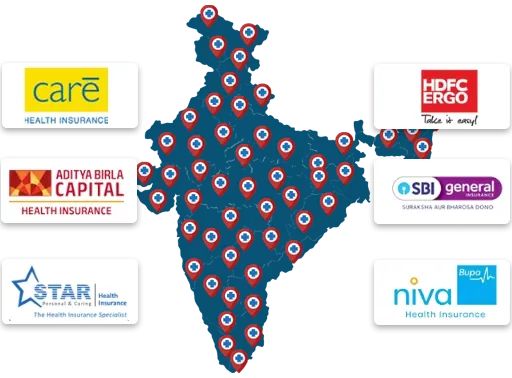





 Reviewed By: Anchita Bhattacharyya
Reviewed By: Anchita Bhattacharyya

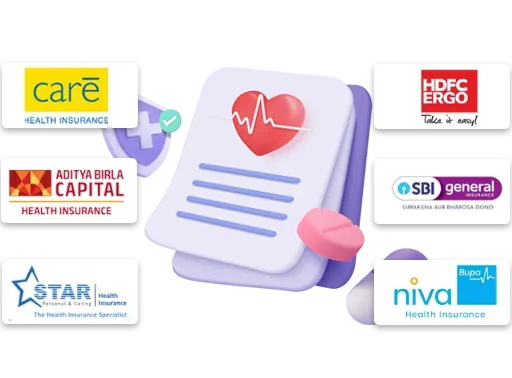
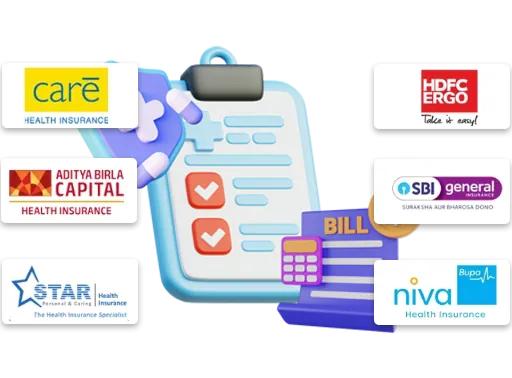
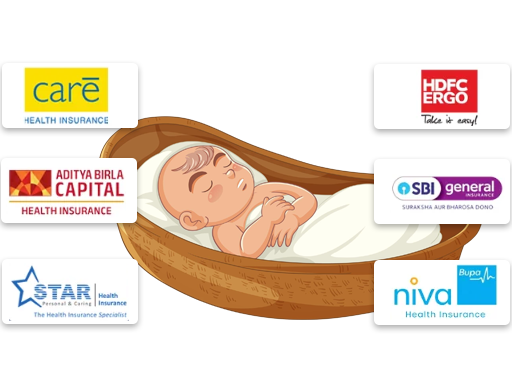
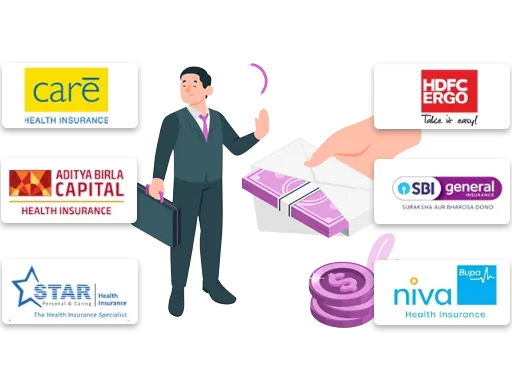
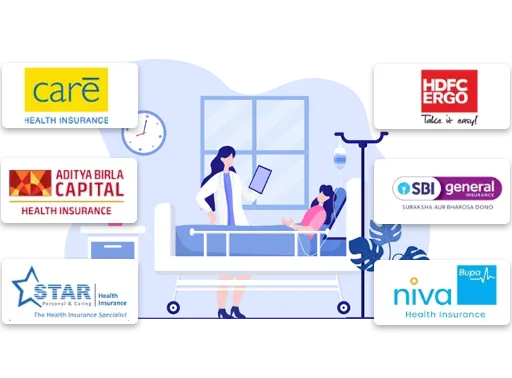









Do you have any thoughts you’d like to share?